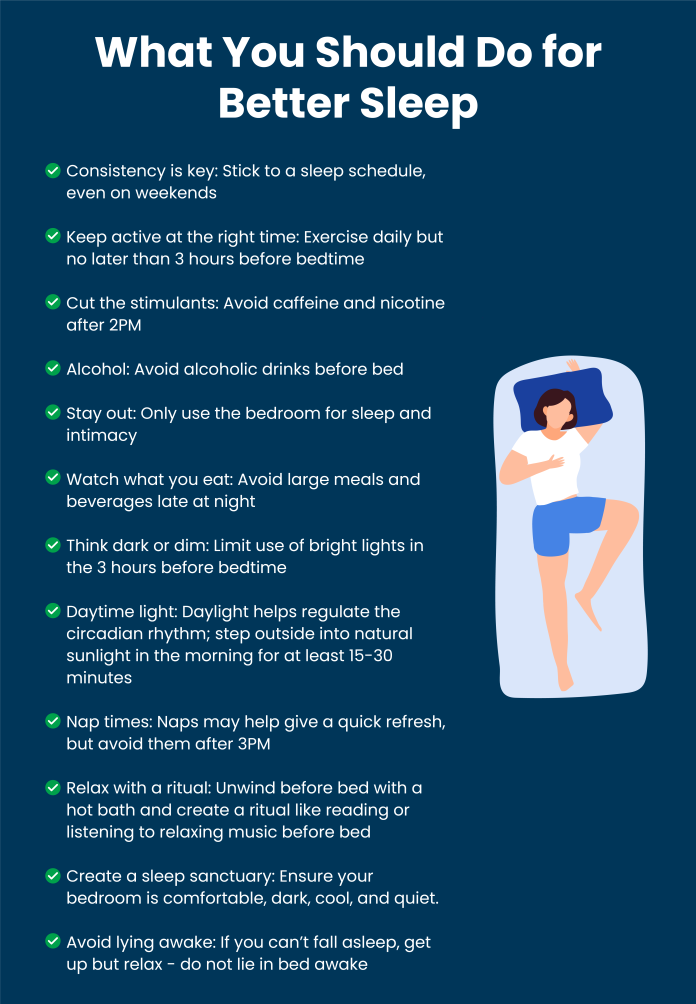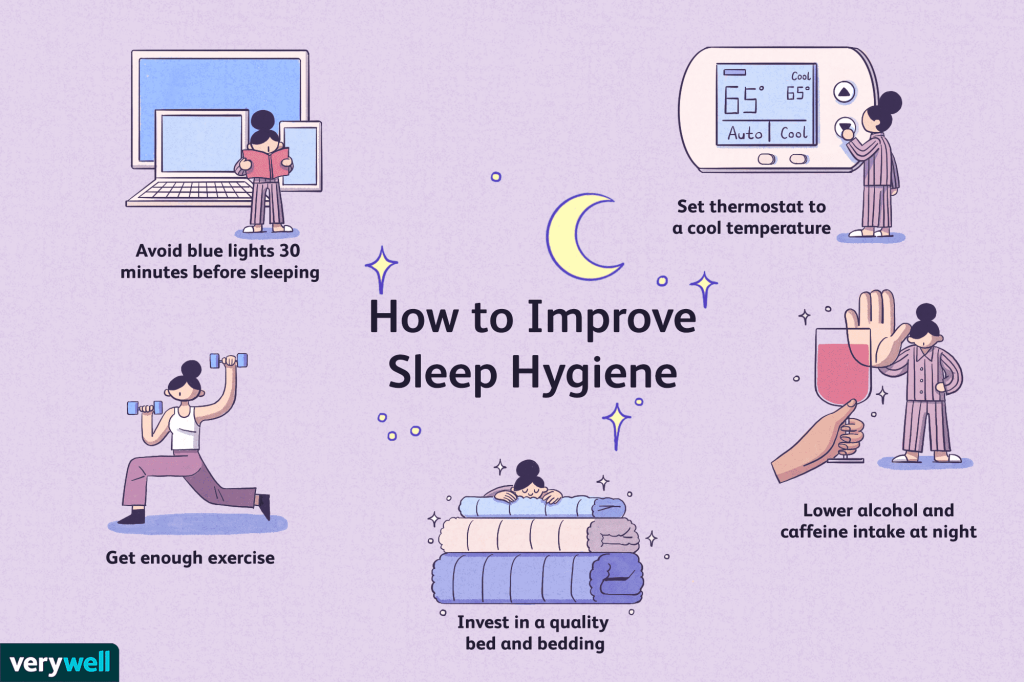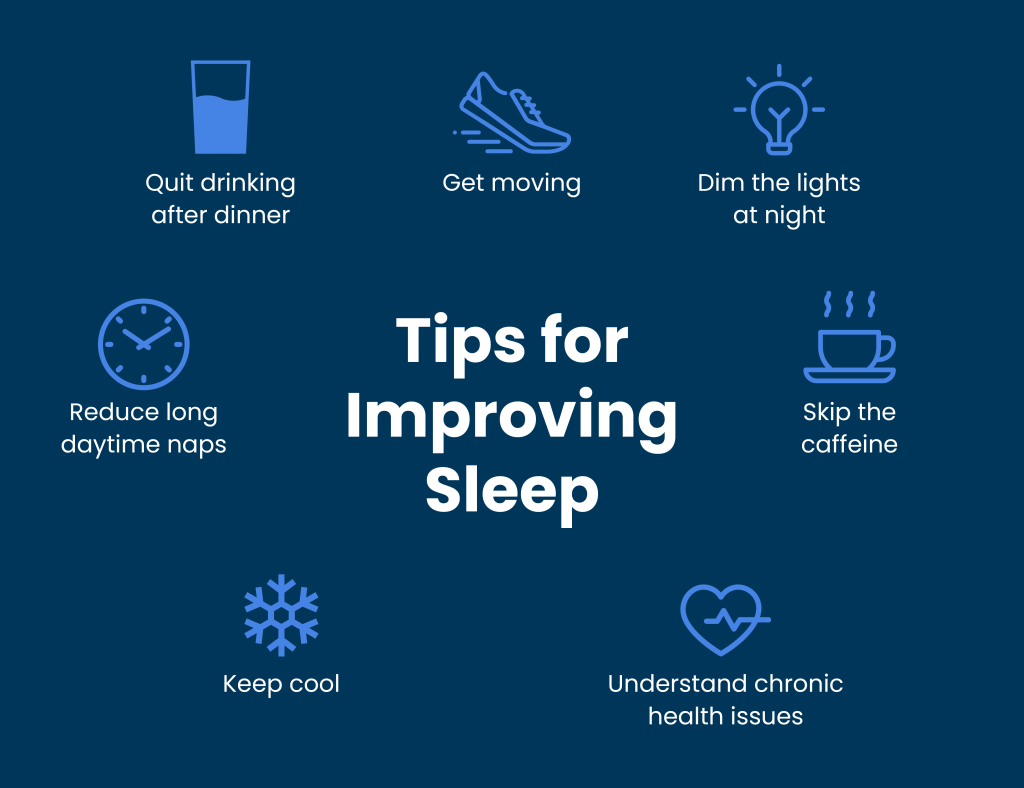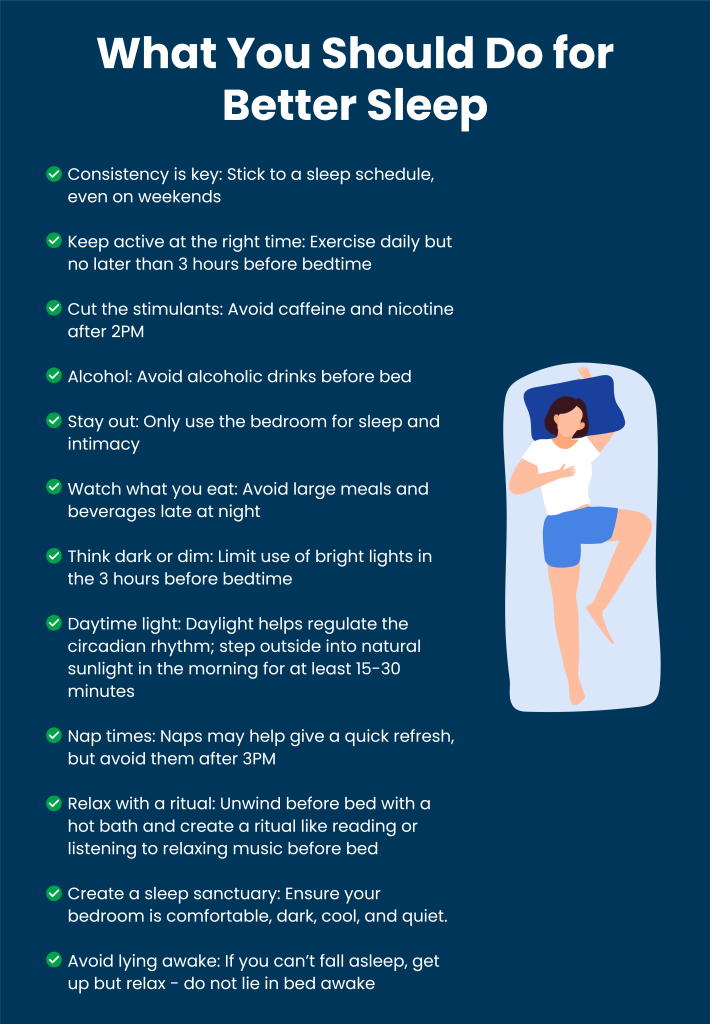Have you ever found yourself tossing and turning at night, desperately seeking a restful slumber? We’ve all been there, longing for a good night’s sleep and waking up refreshed and rejuvenated. In this article, we’ll explore effective strategies and practical tips to help you improve your sleep quality and finally conquer those sleepless nights. From creating a soothing bedtime routine to optimizing your sleep environment, we’ve got you covered. So, say goodbye to restless nights and hello to sweet dreams as we explore the secrets to a blissful night’s sleep.
Review contents
Establish a Consistent Sleep Schedule
Set a Regular Bedtime
Setting a regular bedtime can help regulate our body’s internal clock and promote a more consistent sleep pattern. By going to bed at the same time every night, our bodies will start to anticipate sleep and prepare for rest. This can lead to falling asleep more easily and waking up feeling more refreshed in the mornings.
Wake Up at the Same Time Every Day
Just as important as setting a regular bedtime is waking up at the same time every day, including weekends. This helps to train our bodies to maintain a consistent sleep-wake cycle. By sticking to a consistent wake-up time, we can support our natural circadian rhythm and improve our overall sleep quality.
Avoid Napping
While a short power nap can be refreshing during the day, excessive or long naps can disrupt our sleep schedule. Napping too close to bedtime can make it harder to fall asleep at night. If we find ourselves needing extra rest during the day, it’s best to aim for a short nap early in the afternoon to avoid interfering with our nighttime sleep.
Create a Relaxing Bedtime Routine
Establishing a relaxing bedtime routine can signal our bodies that it’s time to wind down and prepare for sleep. This routine can vary based on personal preferences but should include activities that promote relaxation and reduce stress. Some examples include reading a book, taking a warm bath, practicing meditation or deep breathing exercises, or listening to calming music. Experiment with different activities to find what helps us unwind and prepare for a restful night’s sleep.
Create a Comfortable Sleep Environment
Invest in a Good Mattress and Pillow
Sleeping on a comfortable and supportive mattress and pillow is essential for a good night’s sleep. It’s important to invest in a quality mattress and pillow that suit our unique needs and preferences. A mattress that is too firm or too soft can cause discomfort and disrupt our sleep. Likewise, a pillow that does not adequately support our head and neck can lead to stiffness and pain. Take the time to research and try out different options to find the best combination for a comfortable and restful sleep.
Control the Temperature
The temperature of our sleep environment can significantly impact the quality of our rest. It’s generally recommended to keep the bedroom temperature between 60 and 67 degrees Fahrenheit (15 to 19 degrees Celsius) for optimal sleep. Adjusting the thermostat or using a fan or air conditioner can help create a cool and comfortable sleep environment. It’s also important to ensure we have enough blankets or layers to stay warm during the night without overheating.
Reduce Noise and Light
External noise and light can disrupt our sleep and prevent us from falling asleep or achieving deep sleep. If we live in a noisy environment, using earplugs or a white noise machine can help mask disruptive sounds and create a more peaceful sleep environment. Additionally, using curtains or blinds that block out excess light can promote better sleep by creating a darker atmosphere.
Keep Your Bedroom Clean and Clutter-Free
A cluttered and untidy bedroom can contribute to feelings of stress and anxiety, making it harder to relax and fall asleep. Take the time to tidy up and create a clean and organized sleep environment. Remove any unnecessary items from the room and keep surfaces clear of clutter. A tidy bedroom can help create a calming atmosphere that promotes better sleep and relaxation.
This image is property of www.verywellmind.com.
Manage Your Daily Habits
Limit Caffeine and Alcohol Intake
Caffeine and alcohol can have a significant impact on our sleep quality. Caffeine, a stimulant found in coffee, tea, chocolate, and some medications, can interfere with falling asleep and staying asleep if consumed too close to bedtime. It’s best to limit or avoid caffeine intake in the late afternoon and evening to ensure it doesn’t disrupt our sleep. Likewise, while alcohol may help us feel sleepy initially, it can disrupt our sleep later in the night, leading to fragmented and poor-quality rest. It’s important to drink alcohol in moderation and avoid it close to bedtime.
Avoid Large Meals Before Bedtime
Eating a large meal close to bedtime can make it uncomfortable to lie down and may cause indigestion and disrupt our sleep. It’s best to have dinner or any heavy meals at least two to three hours before bedtime to allow ample time for digestion. If we get hungry before bed, a light snack that contains complex carbohydrates and protein, such as a small portion of yogurt or a handful of nuts, can help satisfy hunger without interfering with sleep.
Exercise Regularly
Engaging in regular physical activity has been shown to improve sleep quality. Exercise helps to reduce stress, increase the production of serotonin (a natural mood stabilizer), and tire our bodies, making it easier to fall asleep and stay asleep. It’s important to find an exercise routine that suits our preferences and abilities and try to incorporate it into our daily schedule. However, it’s best to finish exercise at least a few hours before bedtime, as exercising too close to bedtime may increase alertness and make it harder to wind down.
Establish a Relaxing Evening Routine
In addition to a bedtime routine, incorporating a relaxing evening routine into our daily habits can help us transition from the busyness of the day to a more peaceful state before bed. This could involve activities such as reading a book, practicing gentle stretching or yoga, taking a warm bath, or enjoying a calming herbal tea. By engaging in activities that promote relaxation and stress reduction, we can create a conducive environment for a restful night’s sleep.
Monitor Your Exposure to Electronic Devices
Avoid Screens Before Bed
The blue light emitted by electronic devices such as smartphones, tablets, and televisions can interfere with our body’s production of melatonin, a hormone that regulates sleep-wake cycles. It’s best to avoid using electronic devices for at least an hour before bedtime. Instead, engage in relaxing activities that don’t involve screens, such as reading a book or practicing a calming hobby.
Use Night Mode or Blue Light Filters
If avoiding screens altogether before bed is not feasible, many electronic devices offer a “night mode” or have blue light filters that can help reduce the impact of blue light on our sleep. Enabling these settings can decrease the amount of blue light emitted, making it easier for our bodies to prepare for sleep.
Keep Electronics Out of the Bedroom
To create a sleep-friendly environment, it’s best to keep electronic devices out of the bedroom altogether. Having electronics within reach can tempt us to use them before bed or during the night if we wake up. Removing these distractions can help us disconnect from the digital world and promote a more restful and rejuvenating sleep.
This image is property of www.netmeds.com.
Manage Stress and Anxiety
Practice Stress-Relieving Techniques
Stress and anxiety can greatly impact our sleep quality. Engaging in stress-relieving techniques can help calm our minds and prepare us for better sleep. Some effective techniques include deep breathing exercises, progressive muscle relaxation, mindfulness meditation, or engaging in hobbies that provide a sense of calm and enjoyment. Experiment with different techniques to find what works best for managing individual stress levels.
Try Relaxation Exercises
Incorporating relaxation exercises into our evening routine can help promote better sleep. These exercises may involve focused breathing, visualization, or guided meditation. By consciously relaxing our bodies and minds, we can release tension and create a sense of calm before bed.
Create a Worry Journal
If racing thoughts and worries keep us awake at night, keeping a worry journal can be an effective way to cope. Before bed, take a few minutes to write down any concerns or thoughts that may be occupying our minds. By externalizing our worries onto paper, we can help alleviate some of the racing thoughts and create a more peaceful mindset for sleep.
Seek Professional Help if Needed
If stress, anxiety, or other psychological factors significantly impact our sleep quality, it may be beneficial to seek professional help. A healthcare professional or therapist can provide guidance, support, and techniques to manage stress and anxiety, ultimately improving our sleep quality.
Improve Your Sleep Hygiene
Use Your Bed Only for Sleep and Intimacy
To train our bodies to associate the bed with sleep, it’s important to reserve the bed exclusively for sleeping and intimate activities. Engaging in other activities such as working, studying, or watching television in bed can create a mental association that makes it harder to fall asleep when we lie down. By using the bed only for sleep and intimacy, we can condition our bodies to recognize it as a place of rest.
Create a Sleep-Friendly Atmosphere
Our sleep environment should promote relaxation and tranquility. Consider incorporating soft lighting, calming colors, and comfortable bedding to create a sleep-friendly atmosphere. It’s also helpful to ensure the room is well-ventilated and at a comfortable temperature. By creating a space that promotes sleep, we can enhance our overall sleep quality.
Avoid Clock Watching
Frequently checking the clock during the night can increase anxiety and make it harder to fall back asleep if we wake up. To avoid this cycle, it’s best to remove clocks from our direct line of sight or turn them away from the bed. Trust that our bodies will naturally fall back asleep if given the opportunity, and avoid the temptation to constantly monitor the time.
Avoid Taking Work to Bed
Bringing work-related tasks or stress into the bedroom can make it harder to relax and unwind before sleep. It’s important to establish boundaries and dedicate our bedroom as a space solely for rest and rejuvenation. Leave work-related items outside the bedroom and avoid addressing work concerns right before bed to pave the way for a more peaceful and restorative sleep.
This image is property of sportsforall.com.sa.
Evaluate Your Sleep Position
Find a Position that Works for You
The position in which we sleep can significantly impact our comfort and sleep quality. Each individual may have a preferred sleep position, whether it’s on the back, side, or stomach. Experiment with different positions to find the one that provides optimal comfort and support for the body.
Consider Using Pillows or Supports
Using pillows or supports can help maintain proper body alignment and alleviate pressure points while we sleep. For example, placing a pillow under the knees when sleeping on the back or between the knees when sleeping on the side can help align the spine and reduce discomfort. Additionally, using a supportive pillow that caters to individual needs, such as a memory foam or cervical pillow, can greatly enhance comfort and sleep quality.
Try Different Sleep Positions for Optimal Comfort
It’s common for individuals to change sleep positions throughout the night. If waking up in discomfort or experiencing pain, try experimenting with different sleep positions to find the most comfortable and supportive one. Pay attention to any recurring pain or discomfort and make adjustments to the sleep position or supports accordingly.
Check Your Bedroom Lighting
Use Dim Lighting Before Bed
Many people find it helpful to dim the lights in the evening to signal to the body that it’s time to wind down and prepare for sleep. Replacing bright overhead lights with softer and warmer lighting options can help create a more soothing environment. Dimming the lights in the bedroom can help our bodies produce melatonin, a hormone that promotes sleepiness.
Ensure Adequate Lighting During the Day
Exposure to natural light during the day is essential for regulating our internal body clock and promoting healthy sleep patterns. Make sure to open curtains or blinds and allow natural light into the bedroom during the day. Spending time outdoors and obtaining natural light exposure can positively influence our sleep-wake cycle.
Consider Blackout Curtains or Eye Masks
If external light sources, such as streetlights or early morning sunlight, disrupt our sleep, it may be beneficial to invest in blackout curtains or wear an eye mask. These can effectively block out unwanted light and create a dark sleep environment, promoting better sleep quality.
This image is property of www.sleepscore.com.
Consider Sleep Supplements and Aids
Consult with a Healthcare Professional
Before considering sleep supplements or aids, it’s important to consult with a healthcare professional. They can provide guidance specific to individual needs and circumstances. A healthcare professional can assess any underlying conditions contributing to poor sleep quality and recommend suitable supplements or aids.
Explore Natural Remedies such as Herbal Tea or Essential Oils
Some individuals find natural remedies such as herbal tea or essential oils beneficial for promoting relaxation and better sleep. Chamomile tea, valerian root, and lavender essential oil are known for their calming properties and are often used to create a relaxing bedtime routine. However, it’s essential to research and ensure these remedies are safe for individual use and do not interfere with any existing medications.
Use White Noise Machines or Earplugs if Necessary
For those who struggle with external noise disrupting their sleep, white noise machines or earplugs can help mask unwanted sounds and promote a peaceful sleep environment. White noise machines emit a consistent sound that can help drown out disruptive noises, while earplugs provide physical barriers to reduce the impact of external sounds.
Establish Healthy Habits During the Day
Eat a Balanced Diet
Maintaining a balanced diet throughout the day can positively impact our overall health, including sleep quality. It’s important to consume a variety of nutrient-rich foods, including fruits, vegetables, whole grains, lean proteins, and healthy fats. Avoiding heavy or spicy meals close to bedtime can help prevent indigestion and promote better sleep.
Stay Hydrated
Proper hydration is crucial for overall health and can also contribute to better sleep. However, it’s best to avoid excessive fluid intake close to bedtime to prevent disruptions due to late-night bathroom trips. Aim to stay hydrated throughout the day and reduce fluid intake in the several hours leading up to bedtime.
Avoid Smoking
Smoking can have detrimental effects on our sleep quality. Nicotine, a stimulant found in tobacco products, can interfere with falling asleep and lead to fragmented sleep. Quitting smoking or avoiding smoking close to bedtime can greatly improve sleep quality and overall well-being.
Limit Caffeine Intake
In addition to limiting caffeine intake in the late afternoon and evening, it’s important to monitor overall caffeine consumption throughout the day. Consuming excessive amounts of caffeine, found in coffee, tea, energy drinks, and some sodas, can interfere with our sleep even during the day. Limiting caffeine intake during the day can help promote better sleep quality at night.
By incorporating these strategies into our daily routines and making sleep a priority, we can greatly improve our sleep quality and overall well-being. It’s important to remember that everyone’s sleep needs and preferences are unique, so it may take some trial and error to find the strategies that work best for each individual. It’s always beneficial to consult with a healthcare professional for personalized advice and guidance to address any specific sleep concerns. Sweet dreams!
This image is property of www.sleepscore.com.
































